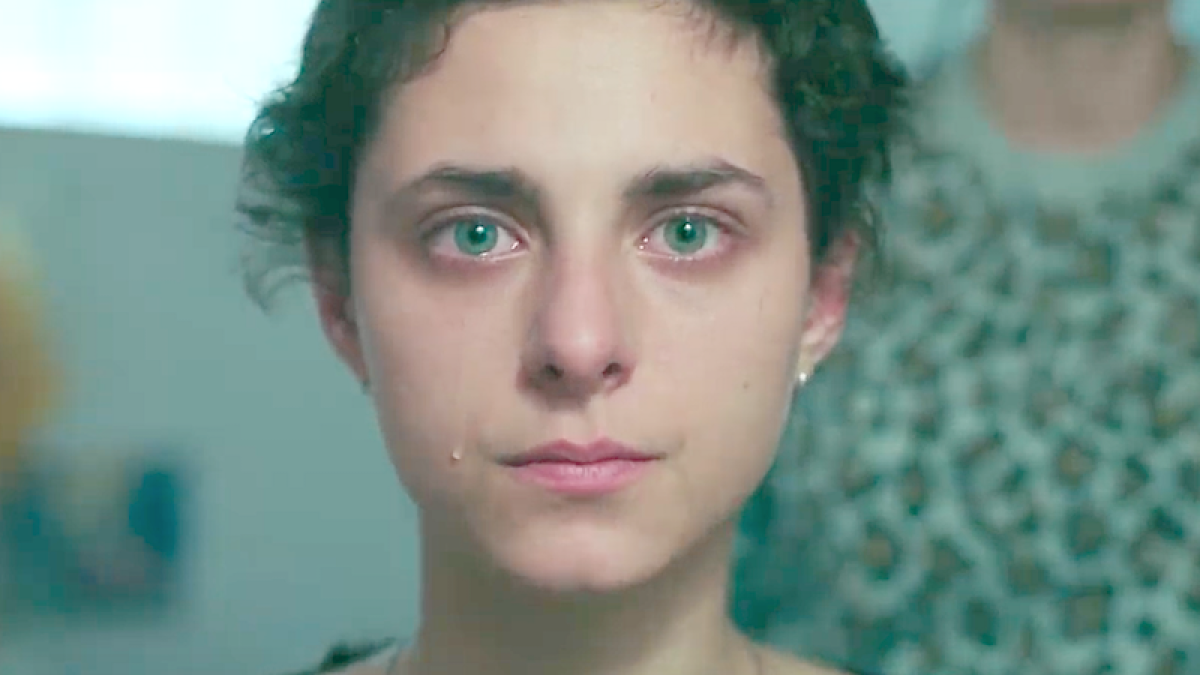
« Antigone » debuts in English Canada this week with a lot of momentum behind it
-
Catégorie(s) : Actualités — CINÉMA — Prix
Sophie Deraspe’s Antigone Opens in English Canada by Maurie Alioff
–
Antigone debuts in English Canada this week with a lot of momentum behind it. Deraspe’s movie world–premiered at the Toronto International Film Festival, where it took the Canada Goose Award for best Canadian Feature, screened at the Festi- val du nouveau cinéma, and is still playing on multiple Quebec screens (with a BO of 303 865 $ at its fourth week-end for 16 screens). It just closed the Festival Cinéfranco in Toronto, and it’s Canada’s submission to Oscar’s newly named Best Interna- tional Feature Film category.
Deraspe’s re-telling of Sophocles’ tragedy opens on a family dinner. Although the people we meet are refugees from the horrors of civil war, they joke and dance in a warm atmosphere of people who enjoy their lives. Antigone (first-time actress Nahéma Ricci) is a high school student who passionately loves her grandmother Méni (Rashida Oussaada), brothers Eteocle (Hakim Brahimi) and Polynice (Rawad El-Zein), and sister Ismène (Nour Belkhiria). Méni and her brilliantly coloured, tradi- tional dress embodies the Algerian Berber village the family left behind after Antigone’s parents were murdered.
Rebel Spirit
A few weeks ago, I spoke to Deraspe about her powerfully visual film. She explained why Antigone is frequently linked to the colour red, a marker of her character. “Red is the color of revolution,” said the writer-director-cinematographer who shot her own movie. “I wanted her to wear red because right from the beginning she has revolution inside of her.”
Antigone’s rebelliousness erupts when in a moment that recalls the infamous real-life police shooting of Montreal teenager Fredy Villanueva, Étéocle gets killed by cops. Étéocle has never broken the law, but his younger brother Polynice, guilty of petty crimes, gets imprisoned and threatened with deportation. Determined to shield her family, Antigone, like her namesake in the ancient Greek tragedy, fights powerful forces and endangers herself.
“Antigone is a tragedy because it’s a sacrifice,” Deraspe told me. “She sacrifices herself in order to stay true to her own set of values. In my interpretation, it’s also about love. That’s how I directed Nahomi Ricci. I wanted light to come from her eyes, this light of love. When you look back at Sophocles, the story is more about paying respect to the gods. For me, the connec- tions she has with her family, and what came before her, are what drive her.”
True Blue
In numerous full-frontal closeups, Ricci’s deep blue eyes burn out of the screen, giving the teenage actress an unearthly mythic quality. She’s a 21st century adolescent who would be at home on a stage in ancient Greece. I asked Deraspe if she cast her lead primarily because of those extraordinary eyes. “I cast her because of the ensemble of what she is,” says the moviema- ker. “The camera loves her. What she is, and what she expresses were the character that I wanted. My God, I’m blessed by the gods and goddesses.”
Deraspe’s emotional connection to a dramatic heroine, who in her film recalls Jeanne D’Arc in Carl Dreyer’s The Passion of Joan of Arc, goes back a long way: “When I first read Antigone in my early 20s, I didn’t know that I would make films, but I knew I would do something related to art, and I would go back to that material I felt really strongly about.”
Chorus Line
Deraspe’s update merges the spirit of the original with a concern for today’s international refugee crisis and an invoca- tion of contemporary culture. The characters in her movie could have been Haitian, or from anywhere else in the world. “When I wrote the script,” Deraspe recalls, “I had to figure out ultimately what is this state that rules us, this system? It has to do with identity that we take for granted when we were born here.”
At turning point moments in Antigone, Deraspe’s meticulously lit, classical style gives way to split screen montages that fuse hip hop, graffiti, social media, and hand signal codes. She sees these breaks in style as an “adaptation of what the chorus was in ancient Greek plays,” as well as being in tune with the film’s tee- nage characters. “They sometimes feel like the pacing of music videos. Teens dancing, chanting, using all sorts of communica- tion that are in social media.”
Overall, Antigone is an ingeniously planned and executed fusion of ancient and modern.
***


